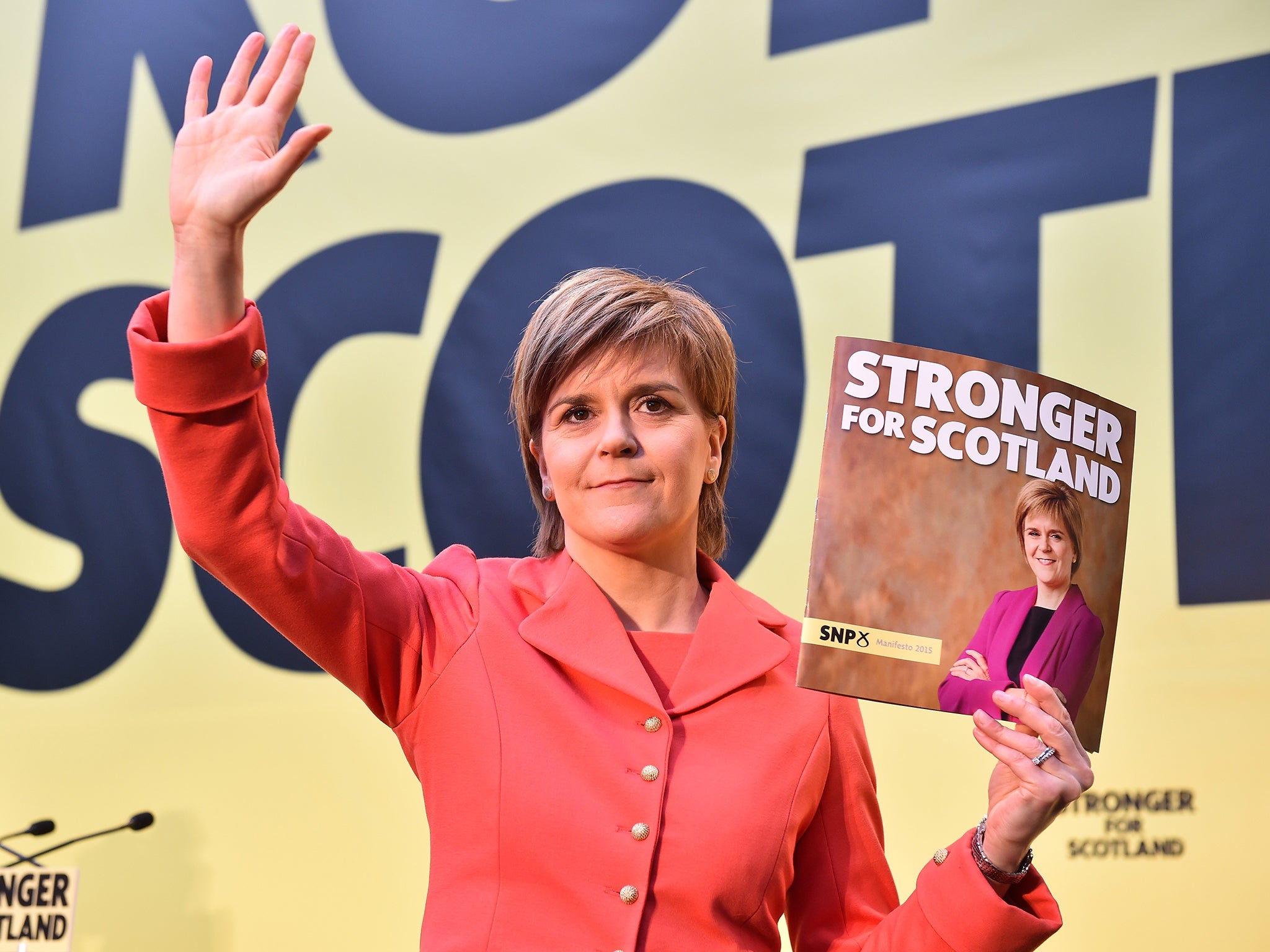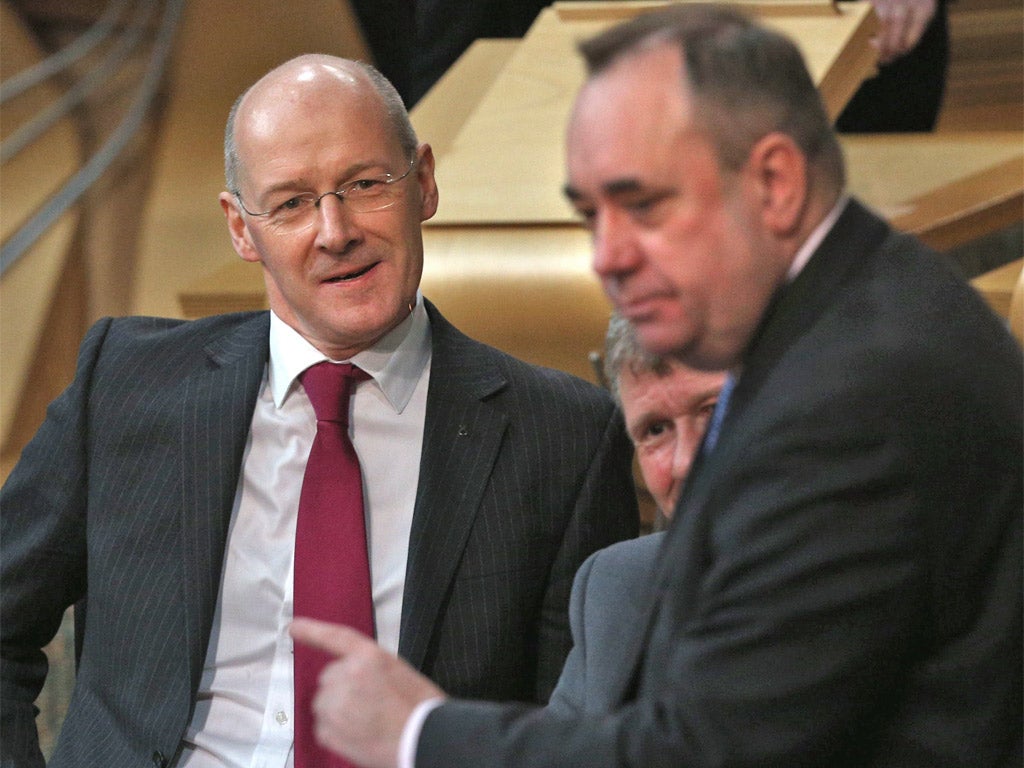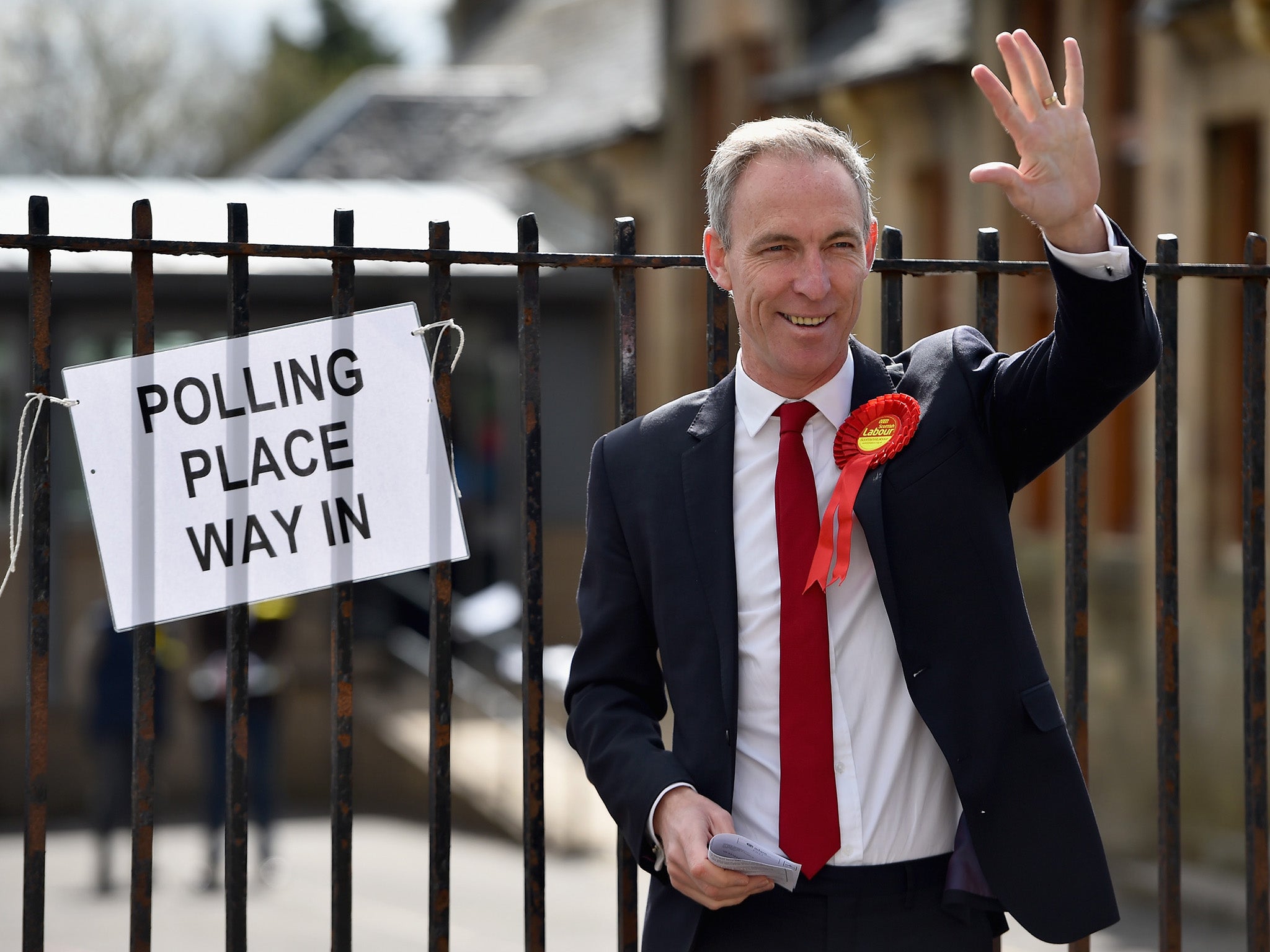Election results: SNP landslide and Tory majority raises fears of constitutional crisis
The SNP is expected to lobby for regular slots at Prime Minister’s Questions and try to win positions on the House of Commons’ powerful select committees

The SNP’s 56 Westminster MPs will spend the next five years attempting to “pressurise” the Conservatives into changing course on austerity, the party said after recording a landslide victory in Scotland at the general election.
Sources said the party intends to use its position as the third largest force at Westminster to lobby for regular slots at Prime Minister’s Questions, allowing it to directly challenge David Cameron on the impact of his policies in Scotland and the rest of the UK.
The SNP’s bloc of MPs will also attempt to win positions on the House of Commons’ powerful select committees, allowing its members to scrutinise and pass judgement on all aspects of Government business, The Independent understands.
As the nationalist party adjusted to its heightened role in UK politics, Scottish Labour insiders said moves were already under way to force the resignation of leader Jim Murphy, who has refused to step down despite losing his seat in Renfrewshire East.
A special meeting of the party’s Scottish Executive Committee is expected to be called within a week, with its agenda dominated by what one insider called “an autopsy of our own carcass”. Mr Murphy’s position will dominate the debate.
The SNP leader, Nicola Sturgeon, said that her party had been elected on a promise to end austerity and that she would be making this point “directly to the Prime Minister” the first time she spoke to him.
Speaking as she arrived in London for the VE Day commemorations, Ms Sturgeon said: “The Government cannot ignore what happened in Scotland last night. There was an overwhelming vote for…an end to continued austerity. Those issues that we put so firmly at the heart of the campaign we now intend to put firmly at the heart of the Westminster agenda.”

The political map of Britain now indicates a deeply divided country. In Scotland, 50 per cent of the vote went to the SNP, a party that during the election campaign openly declared its desire to lock out the Tories at any cost. But amid a Labour collapse, voters in England and parts of Wales returned the Conservatives to power.
Ms Sturgeon moved quickly to quell concerns that her party’s rise would spark another independence referendum, admitting that “significant numbers” of Scots who backed the SNP voted No last year. “It’s not about winning another mandate for a referendum…I’m not going to go back on that,” she said. “If there’s ever going to be another referendum, people will have to vote for that in the Scottish parliament.”
After being returned to Downing Street, Mr Cameron struck a conciliatory tone as he promised to create “the strongest devolved government anywhere in the world” in Scotland, handing it a range of powers set out in the Smith Commission following last year’s independence referendum.

However, having won a historic victory in Scotland – where it now holds all but three Westminster seats – the SNP is likely to use its influence to push for further powers which go above and beyond the Commission’s recommendations.
Reacting to Mr Cameron’s pledge to implement further devolution “as fast as I can”, the SNP MSP James Dornan said: “It’ll be interesting to see what exactly it is that we’re getting. What has been promised through the Smith Commission still leaves us well short of the powers to grow the economy and tax raising powers. We’re still left with an awful lot that we’re reliant on Westminster for.”
Ahead of the election, when all the polls pointed to a hung parliament, the SNP said it intended to form a “progressive alliance” with Labour to prevent Mr Cameron returning to Number 10. But in the wake of a surprise Tory majority, questions remain over how much power it can actually wield.

John Swinney, Scotland’s Deputy First Minister, said the SNP would exploit every opportunity to “articulate Scotland’s concerns directly into the House of Commons” and “pressurise” the Government to change direction on austerity.
As the nationalists considered their future strategy, appeals for calm in Labour’s Scottish ranks following the rapid resignation of Ed Miliband were not being heeded. Ian Davidson, who lost his Glasgow South West seat to the SNP, led the calls for Mr Murphy to step down as leader.
“He was elected as party leader on the basis that he was an MP. Only MPs and MSPs can stand for the leadership,” he said. “Morally, as the man who has led us to the biggest ever disaster that Labour here, he cannot continue.”
Defending his decision to stay on as leader after his majority of 10,000 was easily overturned by the SNP’s Kirsten Oswald, Mr Murphy said there had not been enough time to turn around Scottish Labour in his five months at the head of the party.
Defending his decision to stay on as leader after his majority of 10,000 was easily overturned by the SNP’s Kirsten Oswald, Mr Murphy said there had not been enough time to turn around Scottish Labour in the five months at the head of the party.
He said his party had “lacked a clear message” in its battle against the SNP, had not been “radical enough” and had failed to reflect Scotland’s new found mood of “confidence and optimism”.
However, Labour insiders accused Mr Murphy of “underestimating” the depth of the party’s woes, suggesting he had believed his experience in Westminster as a government minister would “bring professionalism to the amateurs”.
One former MP who lost his seat at the election attacked both Mr Murphy and Mr Miliband. He told The Independent: “Ed said in 2011 ‘the fightback starts here’. But in Scotland the fightback was too late. They ignored us, and a knife-edge referendum last year lost ground that could not be recovered.”
Join our commenting forum
Join thought-provoking conversations, follow other Independent readers and see their replies
Comments